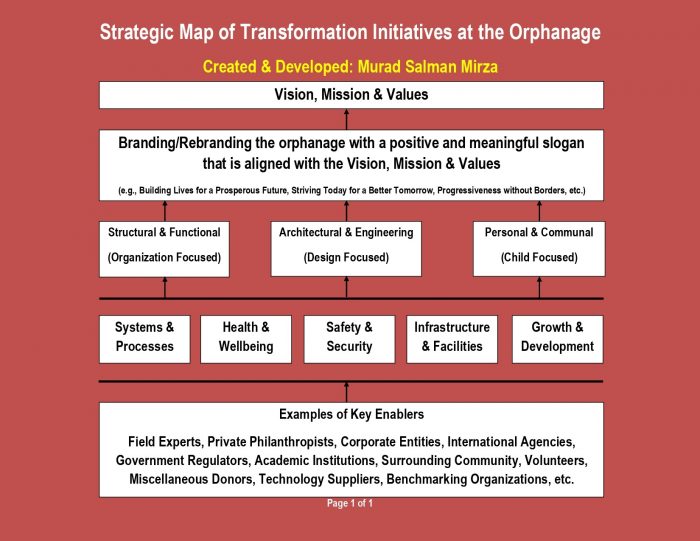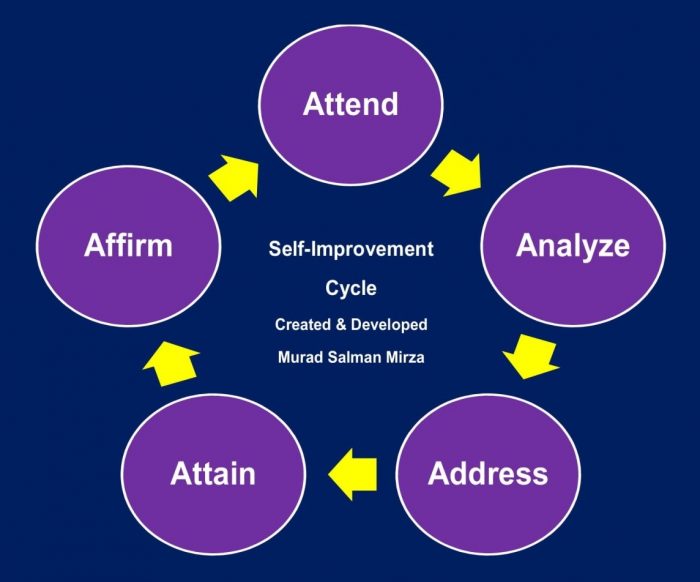(Creating a Robust Bridge Between Savvy Strategy and Optimized Operationalization to Achieve Desired Outcomes)
The Digital Age has emboldened customers to demand much more than simply benefiting from an organization’s products and services. They are increasingly conscious of how organizations behave in the public interest and are readily willing to take their business to those who are more adept at maintaining a positive organizational brand. Consequently, one of the challenges facing organizations in the respective context is the changing role and skill set of leaders who are expected to thrive in a ubiquitous Digital World with a penchant for service that goes beyond the professional expectations of the assigned function by opening horizons for altruistic thought and meaningful contributions to achieve the wider goal of assuring/ensuring a harmonious existence with the global community. This also facilitates in the mitigation/elimination of a misstep that might jeopardize an organization’s future in an increasingly ‘sensitized’ and ‘connected’ world.
Let’s take an example of strategically and operationally transforming a dilapidated orphanage as a CSR initiative for a progressive organization with a capable leadership that is strongly engaged with its surrounding community in terms of meaningful initiatives transforming the lives of vulnerable segments of society. The following steps can be taken:
- Define the Vision, Mission and Values of the Orphanage in line with the Digital Age
- Formulate SMART objectives with judicious goals
- Constitute a capable team with clearly defined responsibilities and authorities
- Assess the current situation
- Develop action plans in line with the SMART objectives and judicious goals
- Solicit help from key stakeholders/facilitators
- Implement the action plans
- Monitor progress and make timely adjustments
- Review the achievement of the desired objectives
- Celebrate success and revise/recalibrate SMART objectives and the aligned goals
- Ingrain improvement cycle for sustainable achievements
- Handover to capable orphanage leaders for self-governance
- Replicate the success model at other orphanages
- Conduct benchmarking initiatives with other orphanages to reinforce the improvement cycle
- Publicize, publish and present case studies to benefit a broader bandwidth of interested parties at the national/international level, e.g., researchers, philanthropists, UN, IMF, World Bank, NGOs, government entities, etc.
The strategic aspect of the transformation initiatives reflects the manifestation of steps 1-3, and is mapped as follows:

Passionate and sincere enablers, depicted in the strategic map of transformation initiatives, will be the key to the success of the transformation initiatives. Their contributions can fall into two main categories:
Provision of specific expertise (see following examples)
- Construction & Maintenance Crew
- Structural Engineer
- Food Catering
- Accountancy & Finance
- Interior Designer
- Architect
- Healthcare Professional (Psychologist, Pediatrics, etc.)
- Teaching Arts & Handicrafts (e.g., Painting, Sketching, Calligraphy, Weaving, Knitting, Musical Instrument, Composing Poetry, Professional Writing, Public Speaking, etc.)
- Social Worker
- Educational Professional (Tutor, Guidance Counselor, etc.)
- Sports & Games
- Process Reengineering
- Enhancing Revenue Streams
- Event Management (Social Occasions, National Celebrations, Fund Raising, etc.)
- Training Apprentices in Vocational and Trade Skills (e.g., Photography, Digital Media, Coding, Carpentry, Cooking, Woodwork, Fixing Mobiles, Repairing Appliances, Home/Community Improvement Projects, Urban Gardening, etc.)
- Giving First Aid
- Teaching a New Language and/or Improving Existing Skills
- Teaching Sign Language
- Website Developer
- Child Sponsorship
Provision of specific resources (see following examples)
- Water Filters
- Appliances
- Computers & Software
- Furniture
- Construction & Maintenance Material
- Supplies for Learning Arts & Handicrafts
- Supplies for Learning Vocational & Trade Skills
- Clothing & Shoes
- Stationery
- Library Books/Videos/Audios
- Board Games
- Sports Kits
- Transportation
- Subscription to Educational Magazines/Channels
- Toys, Building Kits, & Crafts
The operational aspects can be divided into the following four phases:
Phase 1 (Architectural & Engineering)
- Go for quick and visible wins to create a buy-in for gaining acceptance from influencers and minimizing resistance to change (active and/or passive)
- Examples
- Installing filters for ensuring supply of safe drinking water
- Repairing freezers for storage of perishable food
- Fixing ceilings and walls for preventing water seepage
- Converting empty spaces into recreational areas
- Utilizing computers with relevant software for record keeping
- Safety & security of infrastructure and facilities
Phase 2 (Personal & Communal)
- Gain insights into the health & wellbeing of children for subsequent growth & development initiatives
- Examples
- Engaging psychologists for interviews
- Identifying areas of concern
- Developing psychological profiles
- Charting specific growth & development measures
- Cultivating individual & communal harmony
Enriching the ‘positive experience’ during stay at the institution
Phase 3 (Structural & Functional)
- Identify, clarify, visualize, and streamline organizational makeup and key processes to increase strategic and operational effectiveness
- Examples
- Food Services
- HR & Administration Services (Resource Acquisition,
- Entertainment Services
- Academic Services
- Accountancy & Financial Services
- Health & Wellbeing Services
- Donations & Endowment Services
- Maintenance Services
- Housekeeping & Storage Services
- Religious Services
- Safety & Security Services
- Volunteer Services
Phase 4 (Reinforcement of Vision, Mission & Values) - Ingrain improvements as standardized practices
- Inculcate the cycle of self-improvement within available resources
- Self-Improvement Cycle
- Attend
- What needs to be improved?
- Analyze
- What are the deficiencies?
- Address
- What steps need to be taken?
- Attain
- What has been achieved?
- Affirm
- What needs to be ingrained?

The aforementioned Phases cover steps 4-11. Subsequent steps (12-15) reflect the commitment of the organization to assure/ensure the effectiveness of the CSR initiatives so that the following ‘peek into the future’ can be successfully realized:
- Developed talent become professionals in various fields, especially, with skills that are relevant in the Digital Age
- Entrepreneurs emerge to start small businesses
- Future contributors/leaders out of the children themselves take the baton to sustain the growth and development of the orphanage
- Children of today become brand ambassadors of tomorrow as shining examples of ‘changed’ lives and a beacon of hope and positivity for others
Parting Thoughts
The aforementioned example can easily be replicated in case of other CSR initiatives that are also geared towards elevating the organizational brand within the surrounding community through the astute application of altruistic measures in terms of stamping its place as a ‘responsible corporate citizen’. Goodwill gained from such engagements are invaluable in terms of becoming effective buffers against any missteps in the future and/or when tough decisions need to be taken in precarious economic times.
Progressive organizations striving to stay relevant and competitive in the Digital Age are rapidly learning the value of being an indispensable member of the community that readily embraces them due to the positive social impact gained from their presence. It also becomes a formidable barrier for potential competitors vying to disrupt the market because while the ‘flash’ of groundbreaking technology may attract initial attention; it is the strength of the service models reinforced with communal bonds that ultimately decide who gets to prevail in the long run as ‘ingrained humanistic values’ inevitably carry more weight in a connected and sensitized Digital Age than the ‘impervious profitability concerns’ that used to drive the business norms in the past. How strong is your engagement with the surrounding community?








